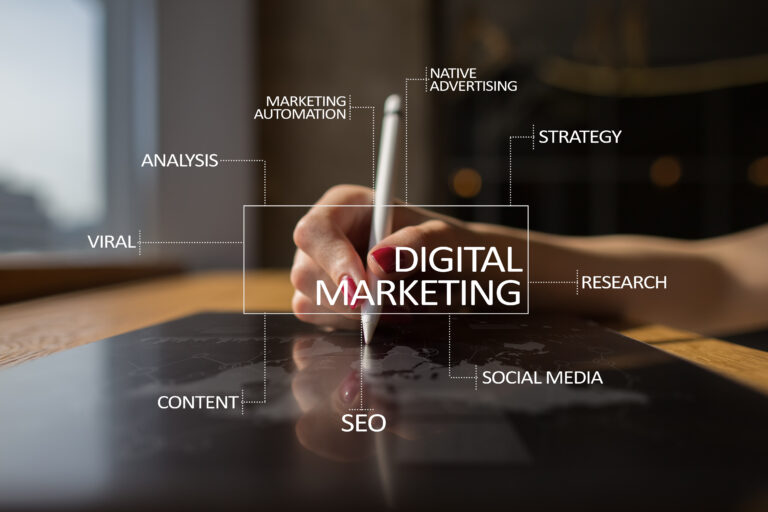Email marketing has proven to be a powerful tool for businesses of all sizes. However, small businesses, in particular, can greatly benefit from leveraging this cost-effective strategy. In today’s digital landscape, where competition is fierce and customer relationships are paramount, doubling down on email marketing can help small businesses stand out from the crowd and achieve their goals.
Understanding the Power of Email Marketing
In order to fully grasp the potential of email marketing, it’s crucial to recognize its role in today’s digital landscape. With the rise of social media and other online advertising channels, some may question the efficacy of email marketing. However, statistics tell a different story. Studies have shown that email has a higher conversion rate compared to social media, and it consistently yields a higher return on investment.
The Role of Email Marketing in Today’s Digital Landscape
Email marketing allows businesses to connect with their audience in a direct and personal way. Unlike social media posts or paid advertisements, emails land directly in the inbox of their recipients. This provides a unique opportunity to engage with customers on a one-on-one basis, fostering a sense of trust and loyalty.
Furthermore, email marketing offers a level of customization and personalization that other marketing channels struggle to match. By segmenting your email list based on various criteria such as demographics, purchase history, or engagement level, you can tailor your messages to specific customer segments. This targeted approach ensures that your emails are relevant and valuable to the recipients, increasing the chances of conversion and customer satisfaction.
In addition, email marketing allows for automation and scalability. With the help of email marketing software, businesses can set up automated email campaigns that trigger based on specific actions or events. This saves time and effort while ensuring that your messages reach the right people at the right time. Whether it’s sending a welcome email to new subscribers or a personalized discount offer to loyal customers, automation streamlines your marketing efforts and maximizes efficiency.
Key Benefits of Email Marketing for Small Businesses
Small businesses can reap numerous benefits from implementing a well-executed email marketing strategy. Firstly, it allows them to reach a wider audience at a fraction of the cost of traditional advertising methods. With email marketing, you don’t have to worry about printing costs, postage fees, or other expenses associated with physical mail. Instead, you can focus your resources on creating compelling content and optimizing your email campaigns for maximum impact.
Additionally, email marketing enables small businesses to build lasting relationships with their customers by delivering personalized and relevant content. By understanding your audience’s preferences, interests, and pain points, you can craft emails that resonate with them on a deeper level. Whether it’s sharing educational resources, exclusive promotions, or helpful tips, email marketing allows you to provide value to your customers beyond just selling products or services.
Moreover, email marketing empowers small businesses to:
- Drive sales and revenue: By strategically promoting your products or services through email campaigns, you can encourage recipients to make a purchase, resulting in increased sales and revenue.
- Increase customer loyalty and retention: Regularly engaging with your customers through email helps foster a sense of loyalty and keeps your brand top of mind. This leads to higher customer retention rates and increased customer lifetime value.
- Enhance brand awareness and credibility: Consistently delivering valuable content and maintaining a professional email presence helps strengthen your brand’s reputation and credibility in the eyes of your audience.
- Target specific customer segments: With email marketing, you have the ability to segment your audience based on various criteria, allowing you to tailor your messages to specific groups and increase the relevance and effectiveness of your campaigns.
- Obtain valuable customer feedback: Email surveys and feedback forms provide a direct line of communication with your customers, allowing you to gather valuable insights and make data-driven decisions to improve your products, services, and overall customer experience.
As you can see, email marketing offers a multitude of benefits for small businesses. By leveraging the power of email, you can connect with your audience on a personal level, drive sales, and build lasting relationships that contribute to the growth and success of your business.
Building an Effective Email Marketing Strategy
Now that we understand the importance of email marketing, let’s dive into how small businesses can build an effective strategy that yields results.
Identifying Your Target Audience
Knowing your audience is crucial for any marketing campaign, and email marketing is no exception. By understanding the needs, preferences, and pain points of your target audience, you can tailor your emails to resonate with them on a deeper level. This helps increase engagement and conversions.
Crafting Engaging Email Content
Once you have identified your target audience, it’s time to craft compelling email content. Your emails should be informative, engaging, and personalized to resonate with your audience. Providing valuable content, such as exclusive offers, expert tips, or relevant industry news, will keep your subscribers engaged and eager to open your emails.
Utilizing Email Automation Tools
Automation is a game-changer in email marketing. By leveraging email automation tools, small businesses can streamline their campaigns, save time, and deliver targeted messages to their subscribers at the right time. Whether it’s sending welcome emails to new subscribers or triggering personalized messages based on subscriber behavior, automation can greatly enhance the effectiveness of your email marketing efforts.
Measuring the Success of Your Email Marketing Campaigns
Once your email marketing campaigns are up and running, it’s crucial to monitor their performance to ensure they are delivering the desired results. By tracking key metrics, you can gain valuable insights into your subscribers’ behavior and make data-driven decisions to optimize your campaigns.
Key Metrics to Track in Email Marketing
Some key metrics to monitor include open rates, click-through rates, conversion rates, and unsubscribe rates. These metrics provide insights into how your subscribers are engaging with your emails and can help identify areas for improvement. Additionally, tracking revenue generated from your email campaigns can directly measure the impact on your bottom line.
Interpreting Email Marketing Data
Collecting data is only valuable if you can effectively interpret it. Analyzing the data from your email marketing campaigns allows you to understand what is working well and what isn’t. It helps you identify trends, segment your audience, and refine your approach for better results.
Overcoming Common Email Marketing Challenges
While email marketing offers immense potential, it is not without its challenges. However, with the right strategies in place, these challenges can be successfully overcome.
Ensuring Email Deliverability
The first challenge small businesses may face is ensuring that their emails are delivered to their subscribers’ inboxes. To improve deliverability rates, it’s essential to use a reputable email service provider, regularly clean your email list, and follow email marketing best practices. Providing valuable content and encouraging subscribers to whitelist your email address can also boost deliverability.
Avoiding Spam Filters
Another challenge is avoiding spam filters that may incorrectly flag your emails as junk. To prevent this, it’s important to adhere to email marketing regulations, use recognizable sender names, personalize your emails, and regularly review your email content for spam triggers. Testing your emails before sending them can help identify any issues that may impact deliverability.
Future Trends in Email Marketing
As technology continues to evolve, so does email marketing. Staying ahead of future trends is crucial for small businesses seeking to maximize the impact of their email campaigns.
Personalization and Segmentation in Email Marketing
Personalization and segmentation are becoming increasingly important in email marketing. By tailoring your emails and offers to individual subscribers or specific customer segments, you can deliver highly relevant content that resonates with your audience. This level of personalization not only improves engagement but also enhances the customer experience.
The Rise of Mobile Email Marketing
With the proliferation of smartphones and mobile devices, optimizing emails for mobile has become critical. Small businesses should prioritize creating responsive email designs that adapt to different screen sizes. Furthermore, leveraging mobile-specific features, such as click-to-call buttons or interactive elements, can further enhance the user experience and drive conversions.
Conclusion
In conclusion, small businesses have much to gain from doubling down on email marketing. Understanding the power of email marketing, building an effective strategy, measuring campaign success, overcoming challenges, and adapting to future trends are all key components of a successful email marketing campaign. By prioritizing email marketing and embracing its potential, small businesses can cultivate lasting relationships with their customers, drive sales, and position themselves for long-term success in the ever-evolving digital landscape.





